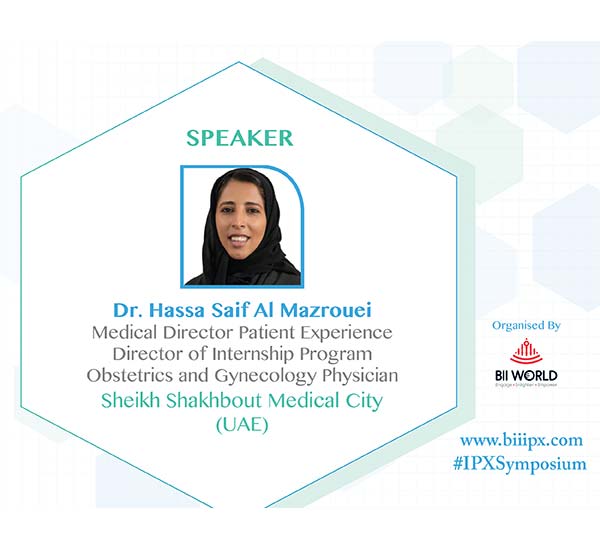1. How would you describe the dynamic change in patient experience, owing to the accelerated pace of digital transformation, technology and innovation?
There have been major changes in the patient experience as a result of the quick pace of digital transformation, technology, and innovation. Via digital platforms, patients may now rapidly and easily access medical resources and information, and telemedicine has made it feasible to get medical care from the convenience of one’s own home. Patients can also monitor their health and wellness utilizing a variety of mobile apps and wearables.
These developments have made it possible for patients to take a more active part in their own care, allowing them to make well-informed decisions and actively manage their own health.
Yet, this digital transformation has also brought about new difficulties, including as guaranteeing data security and privacy and tackling the digital gap that can prevent some patients from having access to resources and technology.
2. Do you think future patience experience strategies will engage in a culture wide change which can be measured and analysed.
Patient experience strategies will need to be more focused on culture-wide change that can be measured and analyzed in the future. This means that healthcare organizations must approach patient care holistically, taking into account not only the clinical aspects of treatment but also the patient’s overall experience.
To achieve this, healthcare providers will need to invest in advanced analytics tools capable of measuring patient satisfaction and identifying areas for improvement.
They will also need to take a more patient-centered approach to care, emphasizing personalized treatment plans and leveraging technology to improve patient engagement and communication.
Furthermore, healthcare providers will need to foster a culture of continuous improvement, encouraging employees to reflect on their practices on a regular basis and identify areas for improvement. This will necessitate patient-centered care and communication training and education programs.
Finally, the goal of these strategies is to create a healthcare system that prioritizes patient needs, promotes better health outcomes, and provides a positive patient experience that is measurable and can be improved on a continuous basis.
3. According to you which functions of the healthcare sector will see remarkable change inclining to the improving standards to meet patient expectations and experience? – explain.
- Hospital Infrastructure
- Medical and healthcare equipment
- Feedback and Diagnostic services
- Telemedicine and medical assistance/accessibility
- Medical information and data management
- eHaaS
All of the functions listed are critical components of the healthcare sector, and they are all likely to undergo significant changes in order to improve patient expectations and experiences. Some functions, however, may undergo more significant changes than others.
To begin, hospital infrastructure will most likely undergo significant changes in order to meet patient expectations and experiences. Hospitals will need to redesign their facilities to make them more comfortable and welcoming, with amenities such as private rooms, comfortable waiting areas, and modern equipment. In addition, hospitals will need to prioritize infection control measures to ensure patient and staff safety.
Second, medical and healthcare equipment will improve significantly. Medical devices and equipment must be more user-friendly, with intuitive interfaces and simple designs. Additionally, there will be an emphasis on providing more personalized treatment options that can be tailored to individual patient needs.
Third, in order to improve the patient experience, feedback and diagnostic services will become more important. Providers will need to focus on gathering patient feedback and using it to improve care quality. In order to improve accuracy and speed up the diagnostic process, providers will also need to invest in advanced diagnostic tools.
The pandemic has accelerated telemedicine adoption, and it is expected to become a standard part of healthcare delivery in the future. Telemedicine will make medical care available to patients from anywhere, making healthcare more accessible and convenient. Fifth, medical information and data management will become increasingly important in order to improve patient experience.
To improve the accuracy and accessibility of patient records, providers will need to invest in advanced data management systems. Providers will be able to provide more personalized care, reduce errors, and improve overall patient satisfaction as a result of this. Finally, eHaaS (Electronic Health as a Service) is expected to grow in popularity in the future. eHaaS will allow healthcare providers to gain access to advanced health technologies and services without making large capital investments. This allows providers to provide better care at a lower cost, thereby improving patient experience and outcomes.
Overall, all of these functions of the healthcare sector will undergo significant changes in order to meet patient expectations and experiences. To succeed in the future, providers will need to prioritize patient needs, invest in advanced technologies, and foster a culture of continuous improvement.
4. How do you feel patient experience strategies will benefit Caregivers and Support Groups?
Patient experience strategies can benefit support groups by increasing engagement and community building opportunities. Online support groups can connect patients and caregivers with others who have had similar experiences, allowing them to share information and emotional support in a safe and supportive environment. This can help to alleviate feelings of isolation while also providing a sense of belonging and connection.
Furthermore, patient experience strategies that prioritize communication and collaboration among healthcare providers and caregivers can improve patient care quality.
Caregivers can advocate for their loved ones, ensuring that they receive the care they require and that their preferences and needs are considered. Caregivers can help providers build stronger relationships with their patients and provide better care.
5. How do you think participants will benefit by attending 5th Annual International Patient Experience Symposium?
Attending the 5th Annual International Patient Experience Symposium can be a valuable experience for healthcare professionals. Participants can gain knowledge and skills, network with peers, stay up-to-date with the latest trends, enhance their professional development, and find inspiration and motivation to improve patient experience in their own work.


